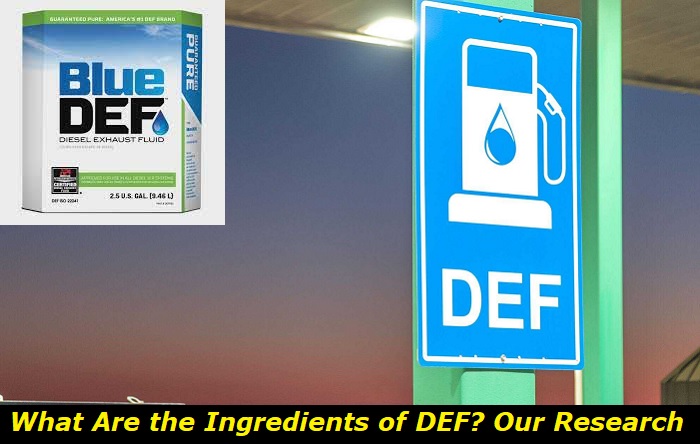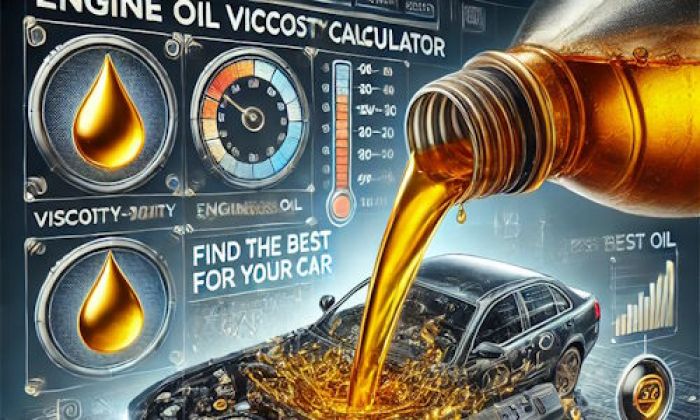For sure, you just heard about DEF or DEF fluid lately or you've been hearing about it for some time and it's only now that you have actually done your search about it. Nevertheless, we are here to provide you with a discussion centered on this topic that also covers what it is made of, what it is used for, and other key facts related to it that you should know about.

What is DEF?
DEF stands for Diesel Exhaust Fluid. Sometimes, it is also referred to as "DEF fluid", but the last word is somewhat of a redundancy already because the last letter in the acronym already stands for "fluid".
It's like a lot of people saying "ATM machine" to ATM which already stands for "Automated Teller Machine", "ABS system" wherein ABS already means "Anti-Lock Braking System", and so on. Nonetheless, we will be referring to the focus of this topic as DEF moving forward in this article.
What is the DEF Used For?
The diesel exhaust fluid is used to reduce the levels of nitrogen oxide (NOx) in vehicle emissions. This mix of urea and de-ionized water helps improve air quality by reducing emissions that are harmful to both the environment and human health. This product is required for vehicles equipped with a Selective Catalytic Reduction (SCR) system, including many bigger trucks and buses, as well as other heavy-duty pickup trucks.
The way this liquid works is quite simple: once sprayed into the exhaust gases near the catalytic converter, it breaks down the NOx molecules from the exhaust stream into harmless nitrogen and oxygen which then get released out through the tailpipe. For this process to take place, DEF needs to be heated up and sprayed at a precise temperature.
Before proceeding, it is important also to understand the basic function of the SCR to better appreciate what DEF offers to a vehicle. Basically, SCR systems are designed to further enhance the process of reducing NOx emissions from diesel-powered engines. This is achieved by using a chemical reaction of the DEF with the exhaust gases which helps convert them into harmless nitrogen and oxygen.
What is DEF Fluid Made Up Of?
DEF is composed of two ingredients: urea and de-ionized water. This product is typically composed of 32.5% urea and 67.5% de-ionized water. The combination of these two ingredients allows for the conversion of nitrogen oxide into harmless elements.
Urea, also known as carbamide, is an organic compound derived from ammonia which gives it some useful properties that make it ideal for use in SCR systems. It has a high reactivity rate when heated up at a specific temperature range, making it perfect for breaking down NOx molecules from the exhaust stream. Its high solubility makes it easier to mix with other substances like deionized water or alcohol, too.
Deionized water, on the other hand, is a type of water that has had its ions removed. This process helps improve the purity and quality of the water which makes it more suitable for use in these types of applications. It also prevents any potential side reactions from occurring when mixed with other substances like urea or alcohol.
The combination of urea and deionized water creates an effective solution for reducing NOx emissions and improving air quality. Together, they work to break down harmful emissions into harmless nitrogen and oxygen molecules which can then be safely dispersed through tailpipes.
Advantages DEF Offers
DEF offers several benefits when it comes to improving air quality and reducing emissions from diesel engines. There are several advantages to using DEF over traditional methods for reducing NOx emissions from diesel-powered engines, and these include:
1. Improved Engine Performance
There is slight increase in fuel efficiency as well as horsepower output since the engine is running cleaner due to the reduction in NOx emissions by using DEF fluid. This means that you get more out of your engine when running on DEF.
2. Better Fuel Economy
Vehicles that use DEF see an improvement in fuel efficiency due to lower NOx levels in their exhaust gases which results in reduced friction on engine parts and improved aerodynamics as well as optimal power delivery. This ultimately leads to better overall performance, less strain on the engine components, and improved fuel economy over time.
3. Longer Engine Life
With the reduction of emissions, your vehicle's engine will last longer since it is not subjected to as much wear and tear caused by pollutants.
4. Improved Air Quality
The environment will benefit from reduced levels of harmful emissions too, resulting in a cleaner atmosphere overall plus compliance with environmental laws.
5. Significantly Lower Health Hazards
Since DEF reduces the amount of NOx in the exhaust gas. This helps mitigate or even eliminate a lot of health risks for people who are exposed to higher levels of diesel fumes on a regular basis. Additionally, this also means fewer harmful pollutants getting released into the atmosphere.
Tips for Properly Using DEF in Your Vehicle
Using DEF in your vehicle is essential for reducing NOx emissions and ensuring that your engine runs at its optimal performance level. Here are some tips on how to use DEF the right way:
1. Check & Top Up Regularly
Make sure you check the reservoir's level regularly and top it up when required according to your car manufacturer's recommendations. A low DEF fluid level could cause damage to your vehicle, as well as poorer fuel economy and reduced engine performance.
The frequency of application of DEF in a vehicle varies, normally factors such as the miles per gallon fuel consumption and the kind of usage that a vehicle has are determining factors in this area. According to most OE manufacturers, a common light-duty truck consumes two to three gallons of DEF every 800 miles.
Meanwhile, trucks rated above 20 mpg only need 10 gallons of DEF per 8,000 to 10,000 mileage. To ensure that your vehicle has enough DEF be sure to check your owner's manual for its manufacturer's recommendations.
2. Use Only Certified Brands
Only certified brands should be used since these have been tested and approved by the diesel engine manufacturers themselves. This guarantees high-quality standards which will ensure that your vehicle performs correctly while using DEF.
3. Follow the Manufacturer Instructions
It is also important to adhere to all the instructions provided by your car manufacturer when handling and refilling DEF. This will include both the recommended temperature range for storing it as well as how often it should be topped up according to the engine type and size.
4. Store Properly
DEF should always be stored in an appropriate container away from direct sunlight, high temperatures, and any sources of ignition. Although it is not that flammable, it's best to store it within ideal conditions to maintain its quality. It is also best to keep it sealed when not in use in order to prevent contamination or evaporation during storage periods.
5. Check For Leaks
Periodically check for any signs of leakage which can lead to a reduction in NOx emissions if left unchecked. If you find any leaks, make sure you address them immediately in order to prevent any further damage.
These are just a few tips on how to best use DEF in vehicles, but be sure to refer to your car manufacturer's instructions for more detailed information and advice from a professional mechanic if needed. By following these guidelines, you can ensure that your diesel-powered vehicle runs optimally while also reducing its emissions footprint significantly.
Conclusion
DEF fluid has become an increasingly vital part of many vehicles today with its vital role in reducing NOx emissions from the exhaust stream. It is made up of 32.5% urea and 67.5% de-ionized water which allows for the conversion of nitrogen oxide into harmless elements improving engine performance and longevity, resulting in better fuel efficiency as well as improved air quality.
Using this special fluid allows diesel engines to run cleaner, more efficiently, and with less harmful emissions in the atmosphere, ultimately contributing to improved air quality and a greener environment. It is not only beneficial for your vehicle but also for the planet and its inhabitants as a whole. So, if you have a diesel-powered engine, make sure you use DEF correctly in order to get the most out of it while reducing emissions.
Do not forget to check for leaks regularly and top up or replace DEF when necessary. This will help extend the life of your engine and reduce harmful pollutants in the atmosphere. Following these guidelines should ensure that your diesel-powered vehicle runs optimally and safely with reduced NOx emissions over time.
Therefore, it is essential for drivers to comprehend this process and equip their vehicles with the necessary DEF fluid to ensure their engine runs smoothly and efficiently. It should also be noted that DEF will start to degrade over time when exposed to heat, hence, you must check its level in your vehicle and regularly refill it as required.
By understanding the importance of this product, you can help contribute towards improving air quality while ensuring safe travels on the road.
About the authors
The CarAraC research team is composed of seasoned auto mechanics and automotive industry professionals, including individuals with advanced degrees and certifications in their field. Our team members boast prestigious credentials, reflecting their extensive knowledge and skills. These qualifications include: IMI: Institute of the Motor Industry, ASE-Certified Master Automobile Technicians; Coventry University, Graduate of MA in Automotive Journalism; Politecnico di Torino, Italy, MS Automotive Engineering; Ss. Cyril and Methodius University in Skopje, Mechanical University in Skopje; TOC Automotive College; DHA Suffa University, Department of Mechanical Engineering






Add comment